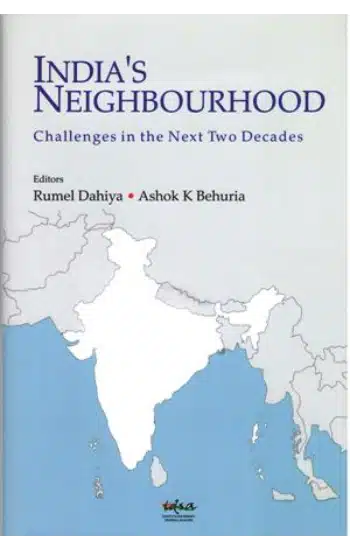
Save: 25%

Save: 25%
INDIA’S NEIGHBOURHOOD: Challenges in the Next Two Decades
Publisher:
| Author:
| Language:
| Format:
Publisher:
Author:
Language:
Format:
₹1,095 ₹821
Save: 25%
In stock
Ships within:
In stock
ISBN:
Page Extent:
The chapters in the book take a prospective look at India’s neighborhood, as it may evolve by 2030. They underline the challenges that confront Indian policymakers, the opportunities that are likely to emerge, and the manner in which they should frame foreign and security policies for India, to maximise the gains and minimise the losses. The key findings that emerge from this volume are the geopolitical situation in the neighborhood is likely to change significantly due to uncertainties in the global economy, chronic instability in the AfPak region, increasing salience of external factors in regional politics, continuing antiIndia sentiments in some of the countries, demographic pressures, growth in illegal migration, and adverse consequences of climate change. However, there are also signs of greater desire for economic integration, strengthening of democratic institutions in some countries, and emphasis on regional cooperation. While india may face increasing security challenged due to instability in certain countries, there will be an opportunity for it to be better integrate its economy with the region. The contributors to the volume argue that in order to deal with the uncertainties in an effective manner, India has to finetune its diplomatic apparatus to proactively deal with emerging realities in the neighborhood systematically pursue policies for inclusive and equitable growth at home build networks of interdependence with all neighboring countries.
The chapters in the book take a prospective look at India’s neighborhood, as it may evolve by 2030. They underline the challenges that confront Indian policymakers, the opportunities that are likely to emerge, and the manner in which they should frame foreign and security policies for India, to maximise the gains and minimise the losses. The key findings that emerge from this volume are the geopolitical situation in the neighborhood is likely to change significantly due to uncertainties in the global economy, chronic instability in the AfPak region, increasing salience of external factors in regional politics, continuing antiIndia sentiments in some of the countries, demographic pressures, growth in illegal migration, and adverse consequences of climate change. However, there are also signs of greater desire for economic integration, strengthening of democratic institutions in some countries, and emphasis on regional cooperation. While india may face increasing security challenged due to instability in certain countries, there will be an opportunity for it to be better integrate its economy with the region. The contributors to the volume argue that in order to deal with the uncertainties in an effective manner, India has to finetune its diplomatic apparatus to proactively deal with emerging realities in the neighborhood systematically pursue policies for inclusive and equitable growth at home build networks of interdependence with all neighboring countries.
About Author
Reviews
There are no reviews yet.
Related products
RELATED PRODUCTS
Arjun Subramaniam (Set of 2 War Books)
Save: 25%
Afghan Air Wars : Soviet, US and NATO operations, 1979–2021
Save: 25%
Air Power and the Strategic Balance: The Indian Ocean and Bay of Bengal
Save: 30%
Forgotten Warriors: A History of Women on the Front Line
Save: 25%
Pentagon’s South Asia Defence and Strategic Year Book 2010
Save: 25%
Pentagon’s South Asia Defence and Strategic Year Book2012
Save: 25%
Professional Military Education: Making of the 21st Century Warrior
Save: 30%
Study and Practice of MILITARY LAW(9th Revised Edition 2024)
Save: 25%
YOGI ADITYANATH: Blend of Spiritualism and Political Realism
Save: 25%



Reviews
There are no reviews yet.